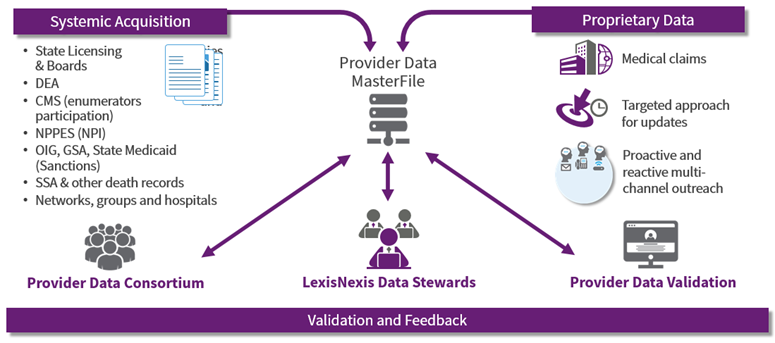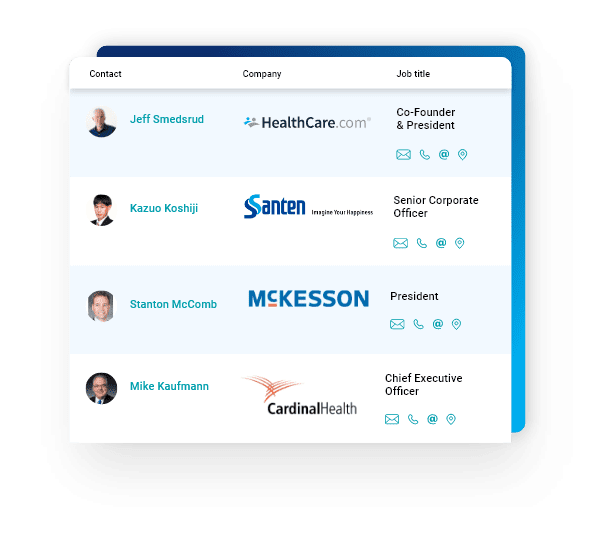Key Attributes to Look for When Choosing a Data Source Service Provider
Choosing a database carrier is an important choice that can dramatically affect your company's operations and data monitoring technique. Amongst the essential features to think about are scalability choices, which make certain that your system can adjust to expanding needs. Protection steps, efficiency metrics, and client assistance likewise play critical duties in this analysis process. As you consider these aspects, it becomes evident that the choice is not merely about functionality however likewise about lining up with your long-term vision. What other factors to consider might influence this vital decision?
Scalability Options
When selecting a data source provider, understanding scalability options is vital to making certain that the chosen remedy can fit future development. Scalability describes the capacity of a database system to increase its ability and performance in response to boosted demand. There are two main kinds of scalability: horizontal and upright.
Upright scalability, or "scaling up," involves improving a solitary server's resources, such as CPU, RAM, or storage space. This method can be uncomplicated and economical for smaller sized applications however may get to a restriction where further upgrades are also expensive or impractical.
Straight scalability, or "scaling out," entails adding a lot more servers to distribute the load. This approach enables greater versatility and can suit significant rises in information quantity and individual web traffic (database provider). It is specifically advantageous for cloud-based database options that can dynamically allocate resources based on demand

Security Actions

When reviewing safety and security procedures, consider the implementation of encryption procedures (database provider). Data-at-rest and data-in-transit encryption are vital to make sure that sensitive details stays secured, also in case of a security breach. Furthermore, try to find carriers that offer solid authentication mechanisms, such as multi-factor authentication (MFA), to further enhance access control
Routine safety audits and compliance with industry criteria, such as GDPR or HIPAA, are indicative of a supplier's dedication to data security. Moreover, ask about their case feedback plan; a robust plan can decrease the influence of any kind of prospective safety event.
Performance Metrics
Evaluating performance metrics is essential for companies to make certain that their selected database service provider fulfills functional find more info requirements. Trick efficiency metrics consist of action time, throughput, and scalability, which collectively figure out the performance of data source operations under differing loads.
Feedback time is critical, as it shows exactly how swiftly the database can refine queries and return results. Organizations must try to find metrics that indicate typical action times throughout height and off-peak hours. Throughput, usually gauged in transactions per 2nd (TPS), offers insight into the data source's capability to deal with high quantities of requests without efficiency destruction.
Scalability assesses the database's capability to expand with the company's requirements. A durable data source carrier need to show vertical and straight scaling abilities, enabling for seamless changes as demands rise and fall. In addition, understanding latency, especially in distributed systems, can aid companies evaluate the responsiveness of the data source throughout different geographical locations.
Consumer Support
Dependable consumer support is a keystone of reliable database management, giving companies with the support needed to optimize and solve concerns efficiency. When selecting a data source carrier, evaluating the degree of customer assistance they use is essential. A robust support group need to consist of several channels of communication, such as phone, email, and live chat, making sure that users can access aid whenever they need it.
Furthermore, responsive assistance groups that are available 24/7 significantly boost the integrity of the database solution. Trigger feedback times and effective resolution of concerns can significantly reduce downtime and increase general productivity. It is also advantageous to consider the availability of devoted support workers, who can provide customized assistance based on a company's particular demands.

Pricing Framework
When taking into consideration a database carrier, the prices framework is an essential variable that can dramatically impact a company's spending plan and overall published here method. A adaptable and clear prices version is essential for aligning the database sets you back with company needs - database provider. Organizations should evaluate whether the pricing is based on consumption, per individual, or a level rate, as each version can generate different financial effects in time
It is necessary to assess any kind of additional costs related to the service provider's solutions, such as information storage costs, purchase prices, and assistance fees. Some providers may use tiered pricing, permitting scalability as the organization expands, while others could enforce stringent limits that can become costly as information needs raise.
Moreover, companies must consider the long-term worth of the data source solution. While reduced preliminary rates can be attractive, they may not represent future upgrades, maintenance costs, or integration costs. Conducting a comprehensive cost-benefit analysis will certainly help recognize one of the most ideal pricing framework that balances scalability, assistance, and performance, ultimately ensuring that the picked data source service provider aligns with the company's economic and functional objectives.
Conclusion
In verdict, choosing a data source provider requires mindful consideration of different important functions. Assessing efficiency metrics enables the identification of reliable data sources, and obtainable consumer assistance improves the overall customer experience.
Selecting a database provider is a vital decision that can dramatically impact your organization's procedures and information monitoring strategy.When picking a data source carrier, understanding scalability options is important to ensuring that the chosen remedy can fit future development. When picking a database supplier, examining the degree of consumer support they supply is essential.When taking into consideration a database supplier, the rates framework is a crucial variable that can substantially influence a company's budget and general method. Performing an extensive cost-benefit analysis will certainly help identify the most appropriate rates framework that balances efficiency, support, and scalability, ultimately making sure that the chosen database company lines up with the organization's functional and financial goals.